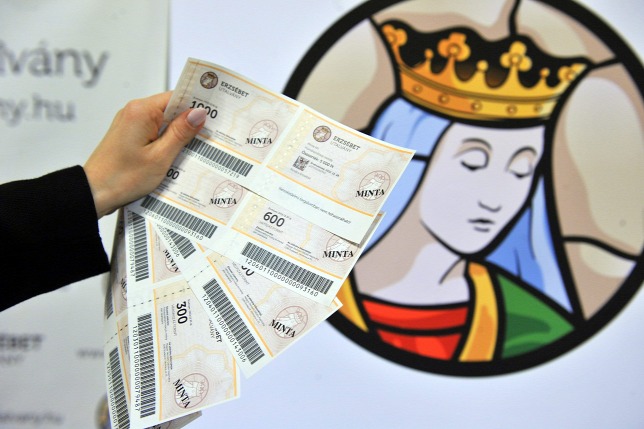The https://english.atlatszo.hu use cookies to track and profile customers such as action tags and pixel tracking on our website to assist our marketing. On our website we use technical, analytical, marketing and preference cookies. These are necessary for our site to work properly and to give us inforamation about how our site is used. See Cookies Policy
Here is why the Hungarian government spent €20 million advertising its own company with a monopoly
Atlatszo has been trying to learn how much taxpayer money the Hungarian government is spending on advertising the so-called Erzsébet (Elisabeth) vouchers for five years. Finally, after several freedom of information requests, court cases and a police complaint the state-owned company issuing the vouchers sent us the documents we asked for.
Hungarian law allows employers to offer cafeteria plans to their employees. If offered such a cafeteria plan, workers can choose from tax-free benefits. In Hungary, the most popular benefits are food and holiday vouchers. In the past few years the state-owned company issuing the Erzsébet vouchers (Erzsébet Utalványforgalmazó Zrt., EUF) has practically had a monopoly on the cafeteria food voucher business. However, despite having a monopoly, the company has been heavily advertising its vouchers.

Prime Minister Viktor Orban gave Erzsébet vouchers worth 33 euros to every Hungarian pensioner less than a month before the April 8 election.
The most popular type of the Erzsébet voucher can be used to buy food, but companies can offer other types as well which can be used to buy clothes, school supplies, entry tickets to cultural or sports events.
It is common practice for state-owned companies with a monopoly in a certain sector to spend huge amounts of money on advertising. The state-owned electricity company, MVM Zrt., for example, is one of the biggest advertisers.
This practice makes it easy to channel taxpayer money to media friendly to the government, thus providing them with lucrative business. Advertising paid by taxpayers is a lifeline to many government-aligned publications.
It was in February 2017 that Atlatszo finally won the court case against EUF: the judge said that the company has to tell us how much they spent on advertising the vouchers. This still was not enough as they did not give us the data. Having no other choice, we filed a complaint with the police because EUF was resisting the judge’s orders.
Within days, the documents with the data we asked for were sent to us: between 2010 and 2016 the Hungarian government spent more than 20.4 million euros on advertising the Erzsébet food vouchers. However, this amount is definitely higher: there were several contracts listed in the documents sent to us that lacked the amount paid.
The documents we received showed that the biggest beneficiary of the Erzsébet voucher advertisements was ATV, a TV channel whose news coverage is generally considered critical of Orban. However, there have been press reports recently about ATV’s owner becoming more friendly towards the Orban government.
The other big beneficiaries are less surprising, they regularly receive a huge amount of taxpayer money for advertising state-owned companies or for disseminating ‘government information.’ The past year the latter usually meant anti-immigration and anti-Soros propaganda messages. The second largest amount went to Echo TV, a channel loyal to Orban. The third biggest beneficiary was Magyar Idők, a newspaper which serves as the mouthpiece of the government. The fourth place went to the companies owned by Árpád Habony (Modern Média Group, MMG), the prime minister’s enigmatic spin doctor. You can see the biggest beneficiaries here:
Written by Katalin Erdélyi
English version by Anita Kőműves, editing by Clare Humphreys.
You can read the original, Hungarian-language story here.
[sharedcontent slug=”hirdetes-english”]

